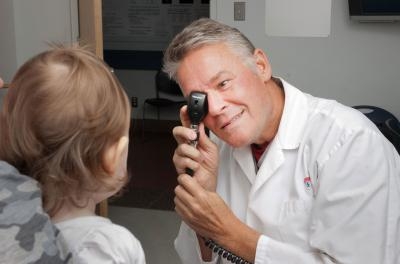
In a new study from South Korea, people with worsening glaucoma on just one side were also more likely to sleep with the affected eye facing downward.
The researchers say that position raises the eye’s internal pressure and probably hastens deterioration of the eye.
In glaucoma, the optic nerve is often damaged by increased intraocular pressure. The damage causes tunnel vision and eventual blindness.
According to the World Health Organization, glaucoma is the second leading cause of blindness around the world, after cataracts.
“There is prior data from the early nineties, suggesting that in patients with glaucoma who sleep on their sides, the eye in the dependent position tends to have greater damage of the optic nerve,” Dr. Jeffrey Schultz told Reuters Health in an email.
Schultz directs Glaucoma Service at the Montefiore Medical Center in New York and is an associate professor at the Albert Einstein College of Medicine.
He was not involved in the study, but said it is “important in letting us know that there is potential for behavior changes in lessening the risk of blindness from glaucoma.”
The study was led by Dr. Kyoung Nam Kim, a researcher in the Department of Ophthalmology at the Chungnam National University hospital in Daejeon.
Treatments to decrease pressure in a patient’s eyeballs can slow progression of glaucoma in some cases. But other patients continue to progress even when intraocular pressure appears to be under control, Kim’s team writes in the American Journal of Ophthalmology.
Since lying down raises the pressure in the eyeball, and sleeping on one side consistently more than the other could be problematic for the eye on that side, the researchers decided to investigate whether a side- sleeping position might be part of the problem.
Kim and colleagues examined the sleeping habits of 430 glaucoma patients who had a visual field loss that was worse in one eye.
They found 132 of the patients preferred to sleep on one side. Of these patients, 67 percent usually slept with the worse eye downward.
They also compared the sleeping habits of patients who had glaucoma with elevated intraocular pressure (high-tension glaucoma) with those with normal pressure (normal-tension glaucoma).
Approximately 66 percent of the patients with normal-tension glaucoma preferred to sleep with the worse eye downward and 71 percent of the patients with high-tension glaucoma slept that way.
The results don’t prove that sleeping position accounts for worsening glaucoma on one side.
But they at least verify a link “between the preferred sleeping position and asymmetric visual field loss between eyes,” the authors write.
“Unfortunately, it is very difficult to control your body position during sleep,” Schultz said.
“Certainly, if one has severe damage in one eye it would seem to make sense to attempt to avoid sleeping on your side with that eye down,” he said.
It may help to sleep on the side with less eye damage – or on your back. But Schultz warns that sleeping on your back may not be the answer for people who are predisposed to sleep apnea, which is another risk factor for worsening glaucoma.
At this point there is no way to improve visual field loss in patients with glaucoma once it occurs, he said.
“The best thing that patients can do to lessen the risk of worsening, is to be compliant with the medical regime and to follow up as directed by the patient’s physician,” Schultz said.
Source: Reuters





